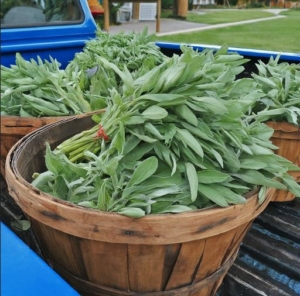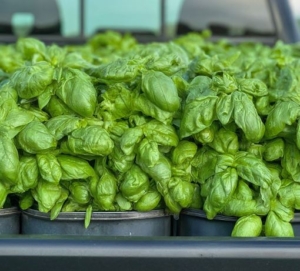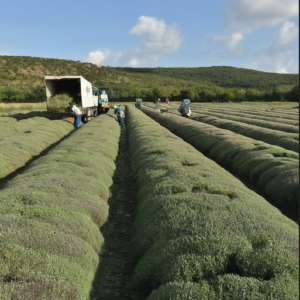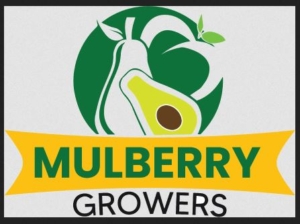Organic Herbs Middle East: An Amazing Exclusive Guide – Over 11 Tips | Qatar| Saudi Arabia | Kuwait| Bahrain| UAE
The Organic Herbs Middle East market or the source of organic herbs in the Middle East is primarily composed of growers of organic herbs that export to the region, distributors, wholesalers, and specialized stores. Our approach in this article is to provide an in-depth comprehensive guide to this market for businesses in the organic herbs Middle East category and traders seeking to grow and find steady, reliable, and sustainable sources or organic herbs. At Mulberry Growers, we supply high-quality fresh herbs and also strive to provide our clients with expertise on how to grow in this market.


Sustainability
To get efficient sources, look for sustainable growers of organic herbs and also practice sustainability in your own business. Implementing resource conservation practices is essential for businesses in the organic herbs Middle East category in the Middle East aiming to enhance their sustainability efforts. By focusing on resource conservation, businesses in the organic herbs Middle East category can reduce their environmental footprint and align with global sustainability standards, which is increasingly important to consumers in markets like the UAE and Saudi Arabia.
If possible, try to use energy-efficient technologies and practices, which is crucial for minimizing environmental impact in the Middle East. Businesses in the organic herbs Middle East category should invest in energy-efficient equipment, utilize renewable energy sources, and implement energy-saving measures across their operations. This not only reduces energy consumption and operational costs but also supports broader sustainability goals. In regions like Kuwait and Bahrain, where energy resources are significant, focusing on energy efficiency can enhance a company’s reputation as an environmentally responsible entity and contribute to long-term cost savings.
Ensuring sustainable sourcing of materials and products is also key for businesses in the organic herbs Middle East category in the Middle East committed to ethical practices. This involves selecting suppliers who adhere to environmental and social sustainability standards, such as fair labor practices and responsible resource management. By prioritizing sustainable sourcing, companies can offer products that align with consumer values and regulatory requirements. In markets like Qatar and the UAE, where sustainability is increasingly prioritized, sourcing from ethical suppliers enhances brand credibility and supports the broader goal of environmental stewardship.
Supply Chain Management
Supplier Evaluation: For businesses in the organic herbs Middle East category in the Middle East, such as those in the UAE, Qatar, Saudi Arabia, Kuwait, and Bahrain seeking to import herbs, rigorous supplier evaluation is crucial. This involves assessing potential suppliers based on criteria such as product quality, reliability, and cost-effectiveness. Conducting thorough due diligence through audits, supplier visits, and quality checks ensures that the chosen suppliers meet the highest standards and align with business needs. By selecting reputable suppliers with a proven track record, companies can enhance their supply chain efficiency and ensure a steady supply of high-quality herbs.
Inventory Management: Optimizing inventory management is vital for businesses in the organic herbs Middle East category in the Middle East to effectively manage imported herbs. Implementing strategies such as just-in-time inventory, automated reorder systems, and demand forecasting can help maintain optimal inventory levels and reduce carrying costs. By accurately predicting demand and minimizing excess stock, businesses in the organic herbs Middle East category can lower storage expenses and mitigate the risk of inventory obsolescence. Regular inventory audits and analysis further ensure that stock levels align with actual usage, supporting a more efficient and cost-effective supply chain.
Logistics Coordination: Enhancing logistics coordination is key for businesses in the organic herbs Middle East category in the Middle East to ensure timely and accurate herb deliveries. This involves working closely with logistics partners to streamline transportation routes, optimize shipping schedules, and improve communication throughout the supply chain. Utilizing advanced tracking technologies and logistics management systems can enhance visibility and coordination, reducing the risk of delays and inaccuracies. Effective logistics coordination ensures that herbs are delivered on time, preserving their quality and meeting customer expectations.
Grow Your Brand Reputation
Public Relations Strategy: Developing a robust public relations strategy is essential for businesses in the organic herbs Middle East category in the Middle East to manage their brand reputation. This involves crafting clear messaging, engaging with media outlets, and addressing public inquiries proactively. By maintaining a positive public image and handling media relations effectively, companies can build trust and credibility within the market. In the UAE, Qatar, Saudi Arabia, Kuwait, and Bahrain, a well-executed PR strategy helps businesses in the organic herbs Middle East category navigate the complex media landscape and enhances their overall brand reputation.
Customer Reviews: Monitoring and responding to customer reviews is crucial for maintaining a positive brand image in the Middle East. Businesses in the organic herbs Middle East category should actively engage with customer feedback across various platforms, addressing both positive and negative reviews professionally. By acknowledging customer concerns and demonstrating a commitment to resolving issues, companies can build strong relationships with their audience and enhance their reputation. Timely responses and transparent communication help reinforce trust and showcase the company’s dedication to customer satisfaction.
Crisis Management: Establishing a comprehensive crisis management plan is vital for mitigating potential damage to a brand’s reputation in the Middle East. This plan should include strategies for identifying potential crises, communicating with stakeholders, and managing media relations during adverse events. Preparing for various scenarios and having a dedicated crisis management team ensures that businesses in the organic herbs Middle East category can respond quickly and effectively. By addressing issues transparently and taking corrective actions, companies can minimize negative impacts and maintain their brand integrity.
Ethical Practices
Fair Labor Practices: Ensuring fair labor practices is essential for businesses in the organic herbs Middle East category in the Middle East to uphold ethical standards. This involves providing fair wages, safe working conditions, and respecting workers’ rights across all levels of the supply chain. By conducting regular audits and working closely with suppliers to ensure compliance with labor laws, companies can support ethical labor practices. This commitment not only fosters a positive work environment but also builds trust with customers and stakeholders who value corporate responsibility. Upholding fair labor practices aligns with global standards and enhances the company’s reputation in markets like Saudi Arabia and the UAE.
Ethical Sourcing: Ethical sourcing involves procuring materials and products from suppliers who adhere to ethical practices, including environmental sustainability and fair treatment of workers. For businesses in the organic herbs Middle East category in the Middle East, this means selecting suppliers who operate with transparency and responsibility. By ensuring that herbs and other products are sourced ethically, companies can offer goods that align with consumer values and regulatory requirements. Ethical sourcing supports long-term sustainability and enhances brand reputation, particularly in markets like Qatar and Kuwait where consumers increasingly prioritize ethical considerations in their purchasing decisions.
Transparency: Maintaining transparency in business practices and communicating ethical standards to stakeholders is crucial for building trust and credibility. For businesses in the organic herbs Middle East category in the Middle East, this involves openly sharing information about sourcing practices, labor conditions, and environmental impact. Regularly reporting on these aspects and engaging with stakeholders through clear, honest communication demonstrates a commitment to ethical practices. Transparency not only helps in meeting regulatory requirements but also fosters positive relationships with customers and partners, enhancing the company’s reputation and encouraging consumer loyalty across the UAE, Bahrain, and beyond.
Support Your Employees to Develop Talent that Helps Your Business
Skill Development: For businesses in the organic herbs Middle East category importing fresh herbs in the Middle East, providing comprehensive training programs to enhance employees’ skills is essential. These programs should focus on various aspects such as herb handling, quality control, and customer service. By equipping staff with advanced knowledge and practical skills, companies ensure that their workforce can handle fresh herbs efficiently, maintain high quality, and deliver excellent customer service. Investing in skill development not only improves operational effectiveness but also enhances employee satisfaction and performance, contributing to overall business success in markets like the UAE, Saudi Arabia, and Qatar.
Leadership Development: Offering leadership development programs is crucial for cultivating future leaders within organizations that import fresh herbs. These programs should focus on building strategic thinking, decision-making, and team management skills. By identifying and nurturing potential leaders, businesses in the organic herbs Middle East category can ensure a strong leadership pipeline that supports growth and innovation. Leadership development helps in aligning future leaders with the company’s vision and goals, preparing them to tackle challenges and drive the business forward. This investment in leadership ensures sustainable success and competitiveness in the Middle Eastern market.
Continuous Learning: Encouraging a culture of ongoing learning and professional growth is vital for businesses in the organic herbs Middle East category in the Middle East dealing with fresh herbs. Implementing initiatives such as workshops, seminars, and online courses keeps employees updated with the latest industry trends, best practices, and technological advancements. Promoting continuous learning helps employees adapt to changes, improve their performance, and contribute to innovation. By fostering a learning-oriented environment, businesses in the organic herbs Middle East category not only enhance individual competencies but also drive overall organizational growth, ensuring that they remain competitive and responsive in the dynamic herb import industry.

Innovate your Marketing
Creative Campaigns: Designing innovative and engaging marketing campaigns is essential for businesses in the organic herbs Middle East category in the Middle East importing fresh herbs to capture audience attention. Creative marketing campaigns can include unique storytelling, eye-catching visuals, and interactive content that resonates with target consumers. By leveraging cultural insights and local preferences, businesses in the organic herbs Middle East category can create memorable campaigns that stand out in the competitive market. Engaging marketing efforts help build brand awareness, drive consumer interest, and differentiate the business from competitors, enhancing its presence in key markets like the UAE, Saudi Arabia, and Qatar.
Digital Strategies: Utilizing digital marketing tools and strategies is crucial for reaching target audiences effectively in the Middle East. This includes leveraging social media platforms, search engine optimization (SEO), and pay-per-click (PPC) advertising to drive traffic and engagement. Digital strategies also involve analyzing data to understand consumer behavior and optimize marketing efforts. By adopting these tools, businesses in the organic herbs Middle East category can enhance their online visibility, connect with potential customers, and track campaign performance. Effective digital marketing is key to capturing a broad audience and driving sales in the competitive fresh herb market.
Market Segmentation: Tailoring marketing efforts to different market segments is essential for precise targeting in the Middle Eastern fresh herb industry. This involves segmenting the market based on factors such as demographics, geographic location, and consumer preferences. By creating customized marketing strategies for each segment, businesses in the organic herbs Middle East category can address specific needs and preferences, resulting in more effective campaigns. Market segmentation allows for targeted messaging and promotions, improving engagement and conversion rates. This approach helps businesses in the organic herbs Middle East category in the UAE, Saudi Arabia, Kuwait, and Bahrain connect with diverse customer groups and enhance their market reach.
Try Quality Assurance
Standard Operating Procedures: Developing and maintaining detailed Standard Operating Procedures (SOPs) is essential for ensuring consistent product quality in the fresh herb industry. SOPs outline step-by-step processes for handling, processing, and packaging herbs, ensuring that every stage meets stringent quality standards. For businesses in the organic herbs Middle East category in the Middle East, including those in the UAE, Saudi Arabia, and Qatar, adhering to these procedures guarantees that herbs meet high quality and safety requirements. At Mulberry Growers, we provide expertly crafted SOPs that help our partners maintain top-notch quality and consistency, making us a reliable choice for herb sourcing.
Quality Audits: Conducting regular quality audits is crucial for assessing adherence to established quality standards. These audits involve thorough inspections and evaluations of processes, products, and practices to ensure compliance with quality benchmarks. For companies importing fresh herbs in the Middle East, regular audits help identify areas for improvement and prevent potential issues before they affect the product. At Mulberry Growers, we prioritize quality audits to maintain the highest standards and ensure our herbs consistently meet our partners’ expectations, reinforcing our position as a trusted and dependable supplier.
Continuous Improvement: Implementing feedback and lessons learned is key to continuously improving quality processes. This involves analyzing performance data, gathering feedback from partners and customers, and making necessary adjustments to enhance product quality. For businesses in the organic herbs Middle East category in the Middle East, including those in the UAE and Bahrain, ongoing quality improvement ensures that products remain competitive and meet evolving market demands. Mulberry Growers is committed to continuous improvement, leveraging insights and feedback to refine our processes and deliver superior herbs that exceed industry standards and customer expectations.
You Can then Scale Up
Design organic products and processes that can scale efficiently with demand. This is crucial for businesses in the organic herbs Middle East category dealing with fresh herbs. Scalable design involves creating systems and products that can be adjusted or expanded without compromising quality. For companies in the Middle East, including those in Kuwait and Saudi Arabia, ensuring that herb processing and packaging systems can handle increased volumes helps meet growing market demands. Mulberry Growers excels in scalable design, offering flexible solutions that allow our partners to seamlessly scale operations while maintaining the highest quality standards.
Capacity Planning: Effective capacity planning is essential for ensuring the ability to scale production as required. This involves forecasting demand, evaluating current production capabilities, and planning for additional resources or infrastructure if needed. For businesses in the organic herbs Middle East category in the Middle East, such as those in the UAE and Qatar, strategic capacity planning ensures that production can meet both current and future demands without delays. At Mulberry Growers, we support our partners with precise capacity planning to ensure they can scale their operations smoothly and efficiently, helping them stay ahead in the competitive herb market.
Scalable Infrastructure: Building infrastructure that supports scaling operations smoothly and cost-effectively is vital for businesses in the organic herbs Middle East category in the fresh herb industry. Scalable infrastructure includes investing in flexible facilities, advanced technologies, and efficient logistics systems that can adapt to changing production needs. For Middle Eastern businesses in the organic herbs Middle East category, such as those in Bahrain and Saudi Arabia, scalable infrastructure ensures that operations can expand without significant disruptions. Mulberry Growers provides robust and adaptable infrastructure solutions that support our partners’ growth, allowing them to scale operations seamlessly while maintaining high standards and cost efficiency.
Innovation Management
Idea Incubation: Creating robust programs for idea incubation is essential for nurturing and developing innovative ideas from inception to implementation. This involves establishing dedicated teams and resources to support idea generation, evaluation, and execution. For businesses in the organic herbs Middle East category in the Middle East, such as those in the UAE and Qatar, effective idea incubation can lead to groundbreaking advancements in the fresh herb industry. At Mulberry Growers, we excel in fostering innovation through structured incubation programs that help our partners turn creative concepts into viable products and solutions, enhancing our collaborative efforts and market presence.
Innovation Metrics: Measuring the impact and success of innovation initiatives is critical for assessing their effectiveness and guiding future efforts. Innovation metrics might include tracking the number of new ideas implemented, the impact on market share, or improvements in product performance. For Middle Eastern businesses in the organic herbs Middle East category, such as those in Saudi Arabia and Kuwait, using specific metrics helps in evaluating the success of innovation strategies and making data-driven decisions. Mulberry Growers emphasizes the importance of clear innovation metrics to ensure our collaborative projects achieve meaningful results and contribute to market leadership.
Cross-Functional Teams: Encouraging collaboration across departments through cross-functional teams is a powerful way to drive innovative solutions. By bringing together diverse perspectives and expertise, businesses in the organic herbs Middle East category can generate creative ideas and address complex challenges more effectively. For companies in the Middle East, including Bahrain and the UAE, fostering cross-functional collaboration enhances problem-solving and accelerates innovation. At Mulberry Growers, we leverage cross-functional teams to integrate insights from various departments, ensuring that our fresh herb offerings and solutions are both innovative and responsive to market needs.
Customer Relationship Management (CRM)
CRM Systems: Implementing and utilizing CRM systems is essential for managing and analyzing customer interactions effectively. These systems help businesses in the organic herbs Middle East category track customer preferences, purchase history, and engagement metrics, leading to more personalized service and targeted marketing efforts. For businesses in the organic herbs Middle East category in the Middle East, such as those in Qatar and Saudi Arabia, a robust CRM system enhances customer relationships and streamlines communication. At Mulberry Growers, we support our partners by integrating advanced CRM systems that facilitate better customer insights and engagement, ensuring a superior experience for clients and stakeholders.
Customer Segmentation: Segmenting customers based on behavior and preferences allows for targeted engagement and tailored marketing strategies. By analyzing customer data, businesses in the organic herbs Middle East category can identify distinct groups and develop personalized approaches that resonate with each segment. For Middle Eastern companies, including those in Kuwait and Bahrain, effective customer segmentation improves marketing efficiency and enhances customer satisfaction. Mulberry Growers uses sophisticated segmentation techniques to help our partners understand their audience better, enabling more precise and impactful marketing efforts that drive growth and loyalty.
Loyalty Programs: Designing and managing loyalty programs is key to rewarding and retaining valuable customers. These programs can include points systems, discounts, or exclusive offers that encourage repeat business and enhance customer loyalty. For businesses in the organic herbs Middle East category in the Middle East, such as those in the UAE and Qatar, effective loyalty programs build stronger customer relationships and increase retention rates. Mulberry Growers collaborates with partners to develop customized loyalty programs that align with customer preferences, reinforcing brand loyalty and driving long-term success in the competitive fresh herb market.
Maintain the Highest Levels of Product Safety
Safety Standards Compliance: Ensuring that products meet safety standards and regulations is fundamental for maintaining quality and protecting consumers. Compliance involves adhering to relevant safety guidelines and industry standards for fresh herbs, such as those related to pesticide residues and contamination. For businesses in the organic herbs Middle East category in the Middle East, including those in Saudi Arabia and Bahrain, rigorous safety compliance is essential to meet regulatory requirements and build consumer trust. At Mulberry Growers, we prioritize safety standards to ensure that our herbs are both high-quality and safe for consumption, reinforcing our commitment to excellence.
Risk Assessment: Conducting thorough risk assessments helps identify and mitigate potential safety hazards associated with fresh herbs. This involves evaluating potential risks in the supply chain, handling processes, and storage conditions. For companies in the Middle East, such as those in Kuwait and the UAE, proactive risk assessment ensures that safety issues are addressed before they impact product quality. Mulberry Growers implements comprehensive risk assessment practices to safeguard our partners’ interests, ensuring that our fresh herbs meet the highest safety standards and regulatory requirements.
Safety Testing: Performing rigorous safety testing is essential to ensure that products are safe for use and consumption. This includes testing for contaminants, allergens, and compliance with safety regulations. For businesses in the organic herbs Middle East category in the Middle East, such as those in Qatar and Saudi Arabia, safety testing is crucial for maintaining product integrity and consumer confidence. At Mulberry Growers, we conduct extensive safety testing on our fresh herbs to verify their quality and safety, providing our partners with reliable products that meet stringent safety standards.
For CSR, Try Community Engagement
Local Initiatives: Supporting local communities through initiatives such as sponsorships and volunteerism is important for building positive relationships and contributing to social well-being. For businesses in the organic herbs Middle East category in the Middle East, including those in the UAE and Bahrain, engaging in local initiatives helps foster goodwill and strengthen community ties. Mulberry Growers is dedicated to supporting local communities by participating in and sponsoring events and programs that benefit our partners and their communities, demonstrating our commitment to social responsibility and enhancing our community presence.
Stakeholder Involvement: Engaging with stakeholders to understand and address community concerns is crucial for effective community engagement. This involves actively listening to feedback from local communities, customers, and partners to address their needs and concerns. For businesses in the organic herbs Middle East category in the Middle East, such as those in Saudi Arabia and Kuwait, stakeholder involvement helps build trust and demonstrate a commitment to addressing social and environmental issues. At Mulberry Growers, we prioritize stakeholder engagement to ensure that our community initiatives are responsive and impactful, reinforcing our dedication to social responsibility.
Social Responsibility Programs: Developing programs that contribute to the social and economic well-being of communities is a key aspect of corporate social responsibility. These programs can include educational initiatives, environmental conservation efforts, and support for local businesses in the organic herbs Middle East category. For companies in the Middle East, including those in Qatar and the UAE, implementing social responsibility programs enhances corporate reputation and supports community development. Mulberry Growers actively engages in social responsibility programs that benefit the communities we serve, reflecting our commitment to positive social impact and sustainable development.
Contact Us – We Supply Herbs to the Middle East

We supply basil, oregano, sage, rosemary, chives, tarragon, and thyme to the Middle East, including Qatar, UAE, Bahrain, Saudi Arabia, Kuwait, and other nations.
Welcome! Make your inquiry here:
- Call/WhatsApp: +254 716 150 111 OR +254 748 897 749
- Our Email: commercial@mulberrygrowers.com
- Website: www.mulberrygrowers.com